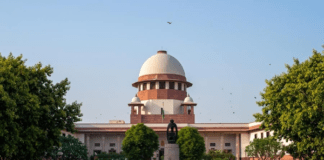Calcutta High Court rules that an able-bodied man can’t avoid maintenance for his wife due to unemployment, reaffirming legal and moral duties.
A recent Calcutta High Court ruling reasserts that legal and moral duties of spousal maintenance do not dissolve with joblessness.
Husband’s Responsibility Goes Beyond Employment Status, Says Court
In a landmark order, the Calcutta High Court has held that a young, able-bodied man cannot escape his legal responsibility to maintain his wife simply by claiming unemployment. The decision reinforces the legal precedent that financial inability, if voluntary or remediable, cannot become a shield against statutory obligations.
The ruling came from Justice Ajoy Kumar Mukherjee, who noted that “once there is no denial of the fact that the husband is an able-bodied young man capable of earning, he cannot simply deny his legal obligation of maintaining his wife equal to the status and strata.”
The Court also clarified that the earning capacity or survival income of the wife is not a valid ground to absolve the husband from his legal and moral responsibility.
“The mere fact that the petitioner/wife is earning some amount of money to survive, since she has been allegedly thrown out of her matrimonial home, cannot be a reason to deny maintenance,” Justice Mukherjee added.
Legal Context and Implications
The order is consistent with Section 125 of the Criminal Procedure Code (CrPC), which allows a wife to seek maintenance from her husband if she is unable to maintain herself. The Court emphasized that “maintenance is a right, not a charity,” and that the concept extends beyond mere economic support—it includes ensuring the wife retains a standard of living comparable to what she had during the marriage.
This judgment may serve as a cautionary precedent for men attempting to evade legal responsibilities under the guise of financial hardship, particularly when no serious physical or mental incapacity exists.
Reinforcing Constitutional Morality
The ruling also indirectly supports the constitutional vision of gender equality, placing the burden of proof and responsibility on the husband, especially in cases where the wife has been forced out of the matrimonial home.
The decision underscores that maintenance is not merely a legal formality but a moral and social obligation, rooted in Indian jurisprudence and cultural ethos.
Stay Informed With More Legal Updates
Read more on similar landmark rulings in our National News section. Explore deeper insights in our Views category or visit Legal Helpline for practical guidance.
For more legal discussions, subscribe to The Legal Observer YouTube Channel.





